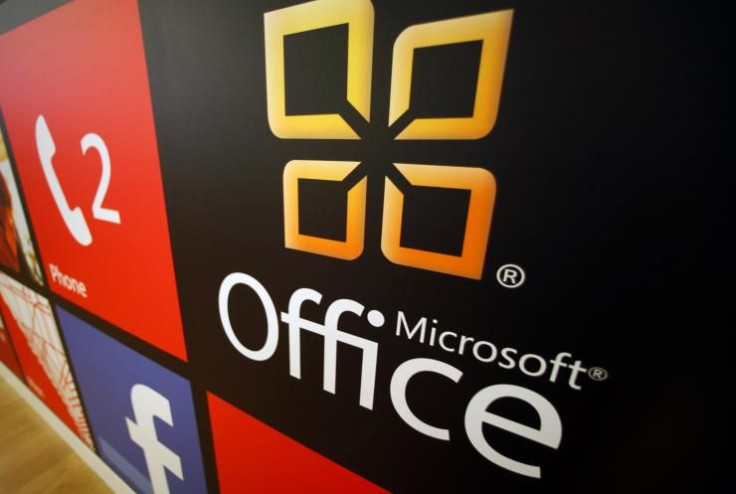Office 365 Crushes Google Apps In Enterprise: Microsoft Now Controls Over 25% Market Share

Office 365 has overtaken Google Apps in the business market by more than tripling its share in one year, according to a new report from cloud security firm Bitglass. The report shows that Microsoft has stormed ahead to take control of 25.2 percent of the market, up from 7.7 percent last year.
"In the last nine months, businesses have just naturally shifted more toward Microsoft," said Rich Campagna, vice president of products and marketing at Bitglass. "It wasn't a case of waiting for results [from a study]; we hear it every day."
Last year, Google held more than double the business market share of Microsoft, with 16.3 percent. Though its share has grown to 22.8 percent, the tables have turned and Google now finds itself as the underdog in cloud enterprise apps.
The company claims the report uses the largest data set on the topic, using cloud-based analysis of traffic data to survey over 120,000 organizations. The data also found that companies using a cloud application as their productivity suite jumped from 28 percent last year to 48 percent. Not only has there been a jump in users over the past year, but Microsoft has capitalized on the growth and marched into the lead.
The news follows a highlight from Microsoft's Q4 2015 earnings call that Office 365 is now in use in four out of five Fortune 500 companies. The service has 15 million subscribers, with a million more signing up every month. On the software side, Microsoft has just released Office for Windows 10, and an edition for older versions of Windows is set to be released soon. The Office team is firing on all cylinders, and customers appear to be signing up in droves.
Campagna notes that newcomers to cloud solutions may be attracted by the fact that they already use the Microsoft Office suite offline. That familiarity, and the fact that Office 365 can provide those same programs, is a boost as businesses adopt cloud platforms. "The speed at which even large enterprises are adopting the cloud is just staggering," said Campagna.
Part of this growth can be explained by Microsoft's broader price structures, offering more tailored solutions compared to the competition. The Office 365 website offers seven different packages, with varying pricing structures, that start at $5 per user/month for an annual commitment to the Business Essentials package, all the way up to $22 per user/month for the full Enterprise E4 package.
Google, on the other hand, has two plans available. The base package will cost $5 per user/month, or $50 per user/year. The premium package will cost $10 per user/month or $120 per user/year, and adds unlimited storage with more than five users and "advanced admin and audit controls."
These prices can go some way to explaining Google's lead in small business. Google holds 22.8 percent of that market, compared to Microsoft's 21.4 percent. At the other end of the scale, Microsoft wipes the floor with Google on businesses with over 1,000 employees in regulated industries: While Google holds 15 percent of that market, Microsoft has increased its marketshare sixfold over last year to take a 30 percent share.
For small businesses, Google's pricing could be seen as a more attractive prospect. If a business does not feel secure enough to make an annual commitment, Google undercuts Microsoft at the low end by $1 per user/month, a saving that can add up quickly. On the higher end, however, Microsoft's wider range of pricing structures can make it a better deal.
The report will be bad news for Google. Having lost its lead in an expanding marketplace, the race is on for the former champion to prove itself as more customers look into cloud solutions.
© Copyright IBTimes 2024. All rights reserved.






















